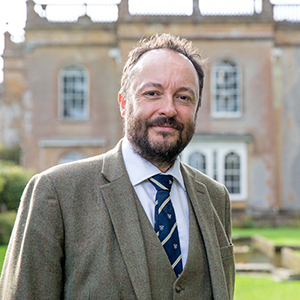What is Intellectual Curiosity and Why is it Important?
Mr Paget-Tomlinson, Headmaster of Leweston School, explores what intellectual curiosity is and why it is so important for his students.

‘Will this be on the test?’ This is the standard refrain from a student who has been taught not to love learning but to love jumping through hoops, and to focus on gaining pieces of paper which allow them to move onto the next one.
Education has all too frequently been atomised into units of consumption in which a ‘learner’ can prove they are capable. However, capability gained in this way is only in one given area, at a given time. Learning your Latin vocab and scoring 10/10 does not mean much beyond the fact that you can repeat a set of information accurately. It doesn’t show that you can apply it, or that you have understood it, beyond the confines designed by the test. It is to our lasting shame in this country that league tables and data driven analyses have forced schools and universities into a whirlwind of ‘how to past the test’ teaching.
I fully understand that we need assessment, and I am not an educator that believes in abandoning knowledge for skills, but if we consider this in wider terms, we are left with pupils exposed to the idea that life is a series of rigidly laid out tracks. ‘Learning’ becomes something that merely facilitates movement towards a goal defined by societal expectations and not the individual. It fails to excite the curious, those who think – “why is that the case?” or wonder if there may be links with other areas and, dare we say, other subjects. Maybe the learner could think to themselves “I am going to read Chaucer because it’s there, and the act of reading it is not for an exam or to improve my essay skills, but because I am curious as to what it’s about and why it was written”.
At Leweston we are currently undertaking a curriculum review. This is in part to continue to ensure we are driven forward not by the need to prove that the learners here can get amazing grades. They already know we have high expectations of them and they of themselves. It is to encourage them to be curious about the world around us as it this curiosity that will make them successful in whatever field they aspire to, not just the pass of exams. It is by being engaged, flexible, enthusiastic and seizing opportunities to learn that they will prove to themselves that they are more than an alpha-numeric sigil at the top of a sheet.
Mr John Paget-Tomlinson,
Headmaster of Leweston School



